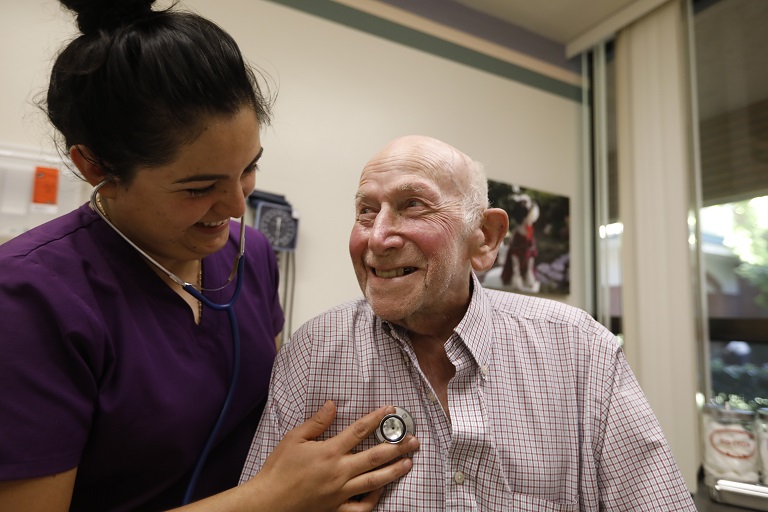Staff Vacations and Travel Considerations During COVID-19
CDC Travel Guidelines:
CDC has a broad portfolio of resources geared towards helping individuals consider the risks and benefits of various forms of travel during the pandemic. These resources include considerations around domestic travel, international travel, cruise ship travel, U.S. travel bans and restrictions, travel health notices, and travel FAQs. These tools are a great way for individuals and employers to evaluate the risks inherent in the various forms of travel that staff may engage in. Additionally, there are a variety of downloadable travel notices that you can use to educate both residents and staff on the risks and considerations around travel during COVID-19.
Key takeaways include:
- COVID-19 transmission can happen anywhere that people gather – not just on vacation. CDC also has a “Deciding to Go Out” tool that may help individuals evaluate – and remember – the risks inherent with destinations that are nearby or at a distance.
- All individuals should avoid going to places where you will be closer than 6 feet away from other people.
- When individuals head out on vacation, they should still practice all the CDC-recommended COVID-19 practices: washing hands, staying home if sick, wearing cloth masks, practicing social distancing, and avoiding large groups of people.
- Individuals should first consider two questions: is COVID spreading where you are
- traveling TO, and / or is COVID spreading where you are living NOW? Check all local health departments for this information.
- International travel will present a significant challenge for most; individuals should thoroughly review the travel bans and restrictions related to the country they plan to visit – and whether they will be permitted to return to the U.S. after their trip.
- If traveling domestically, individuals should evaluate whether the locality they are visiting will permit them entry (with or without self-quarantine,) as well as whether their home state/ locality will permit them to return (with or without self-quarantine.)
- If travelling by a congregate method (bus, train, or airplane), individuals should anticipate a greater risk of exposure and take enhanced measure to protect themselves.
- If an individual’s travels require stops along the way, they should consider where/ if they will be permitted to stop, what the potential for exposure is in such areas, and take extra PPE, hand sanitizer, and other enhanced measures to protect themselves.
- If traveling with, to, or from vulnerable individuals, those who are traveling should either reconsider traveling, or take enhanced precautions. Remember, the people we serve, with whom our staff work in close contact, are in this vulnerable population.
- “Enhanced precautions” related to travel may include: making sure all travelers are up to date on measles, mumps, and seasonal flu vaccinations; packing extra alcohol-based hand sanitizers; packing non-perishable foods, or planning to order curbside or drive through take out; and being prepared to clean and disinfect your travel lodgings,
A Range of Member Solutions:
As LeadingAge members consider how to mitigate the risk of staff travel during the pandemic, they are exploring a variety of solutions. Below, we share three core areas where members are making decisions regarding staff travel. Generally, members are handling requests on a case-by-case basis, or are establishing formal policies that address this issue. Members’ positions on the formality of their vacations policy are dependent on the COVID spread in their state/ local area, as well as their state’s own mandates around in- and out-of-state travel.
- What is the staff member’s intended destination?
Members are working with their employees to consider many questions related to their intended destination. Is there high COVID spread at the vacation spot? Will they be near large groups of people? Is the employee traveling with a small family group, or will they be going by congregate means (bus, train, airplane?) Members are consulting with their local and state requirements and advisories, as well. In some areas, employees must self-quarantine if they travel out of state; in other areas, members are taking a more informal approach with their employees, as their state, the vacation destination, and/or both have low COVID spread or no travel mandates.
- How will the staff member protect themself while traveling?
Drawing on the CDC resources, members are having more in-depth conversations about how their employees plan to protect themselves while they travel. Do they have adequate PPE, hand sanitizer, and cleaning supplies? Do they plan to eat out, and if so, will they be able to social-distance from others? Or, will they cook their own meals in isolation from crowds? Some members say that they know and trust that their employees will be conscientious; others are going to greater lengths to ensure their staff are well-educated on their COVID risks and prevention techniques while on-the-road.
- What is required of the staff member when they return?
Again, this answer, for members, is highly dependent on the COVID spread in the member’s own state, as well as the COVID spread at the employee’s destination. However, most members are considering a variety of the following:
- Required symptoms checks upon return
- Required testing with negative results upon return
- Self-quarantine upon return
- Paid, or unpaid, leave for self-quarantine, if required upon return
- Voluntary termination upon return, if self-quarantine requirements exceed the organization’s existing leave policies and procedures.
Legal and Liability Considerations:
There are three core considerations that members must weigh, from a legal and liability perspective, as they formulate their COVID-related vacation policies.
- Be Aware of State and Federal Laws (Where Applicable)
Members should be mindful of how their policies might interplay with both state and federal laws, including the Families First Coronavirus Response Act that was passed as a result of COVID-19. Changes made there influence how employers can manage COVID-related time off. Also, members should double-check any Notice Provisions that your state laws may require, if they are making broad changes to vacation / planned leave policies. Members who have a unionized workforce should carefully review contract provisions before changing vacation policies.
- Fairness and Consistency
Remember, we must treat employees as fairly and consistently as possible, especially as situations are reviewed on a case-by-case basis. Some job categories will translate easily to work-from-home arrangements (in the event employees must self-quarantine) while others will not. Consider any ways that you can offer front-line, direct-care staff return-to-work alternatives that are as similar as possible to those that administrative staff can enjoy – again, especially in light of any self-quarantine requirements that your organization or state may require.
- Clear Communication to Employees
Be as clear as possible with all employees about any changes to your vacation and planned leave policies, and do so as far in advance as possible to beginning to approve vacation requests. Include information about your ongoing screening and testing policies. While all employees should have the opportunity to take time off from work – especially after working in such challenging conditions – it is important for all employees to remember that universal COVID precautions are important, wherever they go.
The novel coronavirus pandemic is an ever-evolving and challenging threat to all our member communities, and the care and safety of residents and the people we serve must come first. As new information is made available, or best practices change, LeadingAge will continue to keep you up to date. If you have questions or comments on this issue, please reach out to us at covid@leadingage.org

Most Recommended
October 15, 2025
 Shutdown Week Three: Impact of Ongoing Closure on Affordable Housing
Shutdown Week Three: Impact of Ongoing Closure on Affordable Housing
December 10, 2025
Fiscal Year (FY) Funding 2026
October 07, 2025
Immigrant Workforce Matching Program Brings Workforce Relief
Recently Added
December 19, 2025
House Moves Forward on Affordable Housing Reforms
December 19, 2025
White House Cannabis EO Paves Way for Research, Access
December 19, 2025
LeadingAge Urges DHS to Maintain "Public Charge" Guardrails
December 18, 2025



